Latest news and media
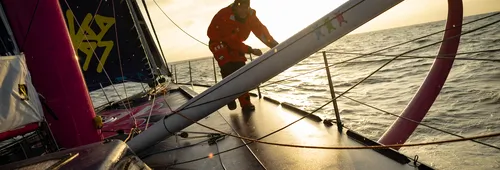
Armel Tripon, back with a competitive, responsible and solidarity-driven project
THESE SKIPPERS AIMING FOR VG2028 - Part 4 of 5. While we know that we can eat yoghurt that is a few days past its use-by date, we are less aware that we can build a boat out of carbon fibre that is past its expiry date! Yet this is exactly what Armel Tripon, skipper of Les P'tits Doudous, an…
Oliver Heer launches his 2028 campaign aboard a foiler
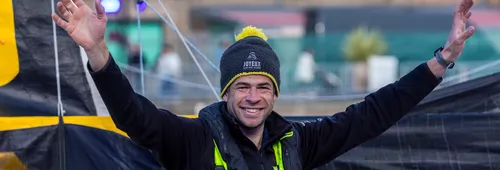
Nico D’Estais, the joyful story of the skipper with the yellow boat
THESE SKIPPERS AIMING FOR VG2028 - Part 3 of 5. A former business strategy consultant in Paris, Nico D'Estais swapped his suit and tie for a sailing jacket several years ago, in order to focus on ocean racing. After two Mini-Transat races and four years in Class40, he is taking a new step…
discover the upcycled luggage collection
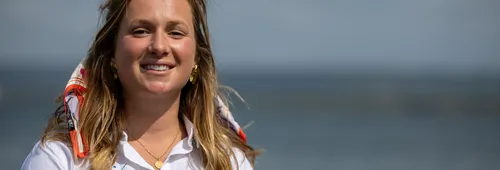
Élodie Bonafous, a figure of the new generation
THESE SKIPPERS AIMING FOR VG2028 - Part 2 of 5 For Élodie Bonafous, 2025 will have been a rich and exciting year. After launching her new IMOCA boat in February – a sister ship of Charlie Dalin's IMOCA MACIF Santé Prévoyance, winner of the last Vendée Globe – named Association Petits Princes –…
It's official: Violette Dorange becomes skipper of the IMOCA Initiatives-Coeur

Happy New Year ✨
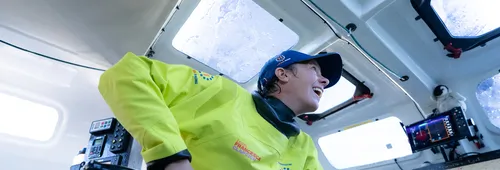
Francesca Clapcich, the Italian-American skipper who spreads energy
THESE SKIPPERS AIMING FOR VG2028 - Part 1 of 5. Francesca Clapcich continues to strengthen her position as one of the most promising sailors in the IMOCA class. Her recent second place with British co-skipper Will Harris in the double-handed transatlantic race “Café l’Or” from Le Havre to…
Sébastien Marsset presents a unique sponsorship model
Sam Goodchild, 2025 IMOCA Globe Series Champion
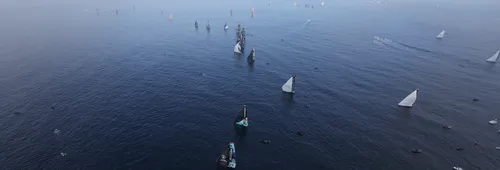
The 2028 Vendée Globe rules unveiled
On 12 November 2028, from Les Sables d'Olonne, a new generation of sailors will set out to take on the most extreme challenge: sailing around the world, solo, non-stop and without assistance, on IMOCA 18-metre monohulls. To date, only 100 skippers have succeeded in this exploit, known to the…
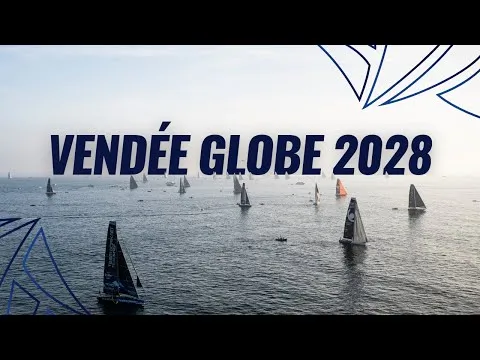
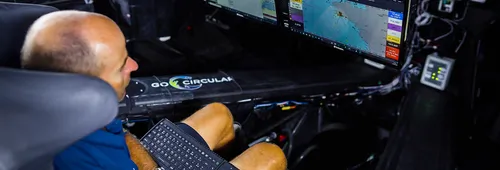
Vendée Arctique 2026: sailing further north than Cape Horn is south!
Organised by the Vendée Globe team and starting from Les Sables d'Olonne, the Vendée Arctique 2026 will be the first solo race in the IMOCA 2025-2028 cycle. For the first time, skippers will have to cross the Arctic Circle at the longitude of their choice, offering unprecedented routes and…
Justine Mettraux and Charlie Dalin rewarded at the 2025 World Sailing Awards
Benjamin Dutreux announces the construction of a new IMOCA for the 2028 Vendée Globe
MACIF announces the construction of a new IMOCA for the 2028 Vendée Globe, with British sailor Sam Goodchild at the helm
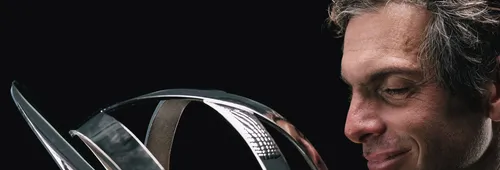
Charlie Dalin: The Hidden Battle Behind Victory
Some victories transcend the world of sport. Charlie Dalin's victory is one such example. Yesterday, the skipper revealed that he had won the latest Vendée Globe while fighting an invisible battle against cancer. It was a deeply moving announcement, reflecting a man whose inner strength and…